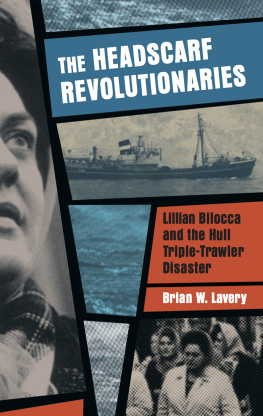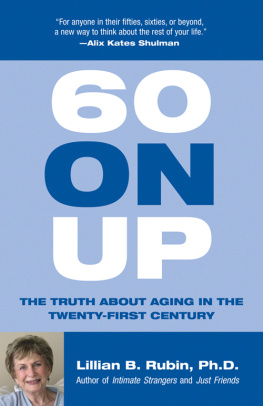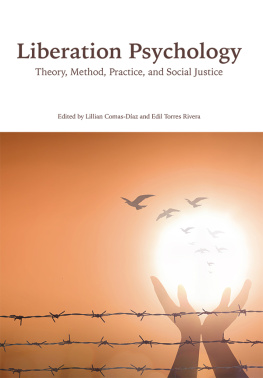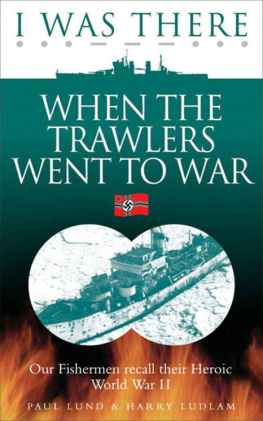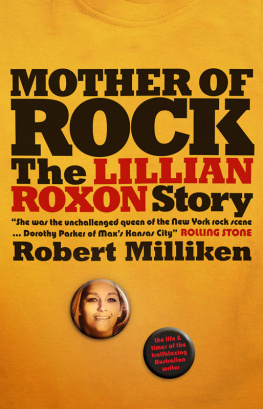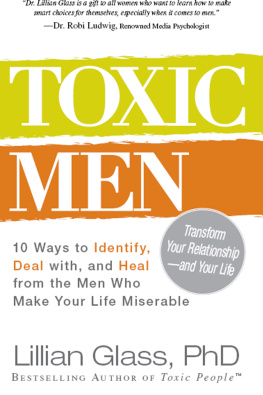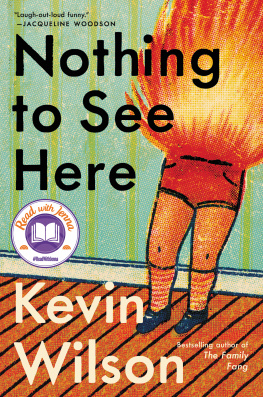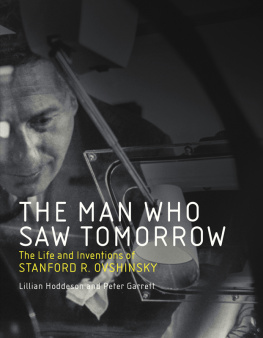The Headscarf Revolutionaries:
Lillian Bilocca and the Hull Triple-Trawler Disaster
This is a story of the men whose exploits built a citys wealth and helped to feed a nation. Laverys tale of how the Triple Trawler Tragedy unleashed the fury of the formidable women of the Hessle Road is inspirational. Lily Bilocca personified the courage and determination of an entire community. - Rt. Hon. Alan Johnson MP, author of This Boy
In the harsh Arctic seas of 1968, three trawlers from Hulls fleet sank in just three weeks. 58 men died. Lillian Bilocca put down her filleting knife, wrote a petition, and stormed into action. With her army of fishwives she took her battle to the docks and led a raid on Parliament. They changed the shipping laws.
Lillian Bilocca became an international celebrity. The lone survivor of the tragedies made headlines too. In a tight fishing community, its dangerous to stand out.
Brians story made me feel as if I was back in the fight in 1968. It was almost like he had been with us. Mary Denness, Trawler Safety Campaigner and one of two surviving Headscarf Revolutionaries.
Mark my words, this could become the next Made in Dagenham. Lilly Bilocca was remarkable. John Prescott
Brian W. Lavery was born in Glasgows East End in 1959, the fourth of six sons of William, a sheet metal worker and Margaret, a shop assistant. He has been a university drop-out, factory worker, car valeter, market trader, waiter, Customs and Excise officer (very briefly) and is now a journalist, tutor and writer.
After 25 years of various senior roles in national and regional journalism he returned to education. In 2011, he gained a first in English and Creative Writing. This book derives from a funded PhD at the University of Hull, where he also taught creative nonfiction.
In December 2013 he wrote and presented Courage and Effect for BBC Radio 4s Four Thought series, drawn from the subject matter of this book. The Oxford Dictionary of National Biography commissioned him to write the entry on Mrs. Lillian Bilocca for its 2013 edition. He has also published short fiction and poetry.
Brian runs a community media project in Hull, where he has lived with his wife Kathryn for more than 30 years. They have grown-up daughters, Catriona and Rose.
Website: brianwlavery.com

First published in Great Britain by Barbican Press in 2015
Copyright Brian Lavery 2015
This book is copyright under the Berne Convention
No reproduction without permission
All rights reserved
The right of Brian Lavery to be identified as the author of this book has been asserted by him in accordance with sections 77 and 78 of the Copyright, Designs and Patents Act, 1988
Barbican Press, Hull and London
Registered office: 1 Ashenden Road, London E5 0DP
www.barbicanpress.com
A CIP catalogue for this book is available from the British Library
ISBN: 978-1-909954-15-1
Typeset in Garamond by Mike Gower
Cover by Jason Anscomb of Rawshock Design
Photos courtesy of the Hull Daily Mail
Printed and bound by Totem in Poland
FOR KATHRYN
IN TRIBUTE TO LILY, MARY, YVONNE, CHRISTINE, MY MOTHER MARGARET & ALL THE STRONG WOMEN
CONTENTS
FOREWORD
The story of the fighting Hessle Road fishwives, led by Lily Bilocca after the Hull Triple Trawler Disaster in 1968, should never be forgotten. And it never will be in this great maritime city. Now the world can share it. After all, it was worldwide news back then. I am pleased this book is telling the whole tragic, powerful story in full for the first time.
Lilys campaign following the loss of the 58 men when three trawlers sank in as many weeks was forceful. Only one man, Harry Eddom, the mate of the trawler Ross Cleveland miraculously survived. The eyes of the world were on Hull. Lily and the Hessle Road women achieved more in weeks than unions and politicians ever did. They took their fight from the fish docks to Westminster and won. There was great personal cost for Lily, who was not only targeted by death threats and attacks in her own community but was blacklisted, lost her job and crucified in the press. Harry Eddoms incredible survival is not only a tale of great drama and courage but also a stark illustration of the dangers that were faced by hundreds of men each year back then.
I was proud of the small part I played in Lilys campaign.
As a young seafarer and trade unionist I was angry and horrified to witness that these men worked under Dickensian conditions, governed by the last master and servant act of the twentieth century. They had to supply their own bedding and lived in quarters worse than prison cells and forced to work in deadly Arctic weather, which had killed before and looked set to do so again. No one reckoned with Lily Bilocca. She and the women of Hessle Road would not sit idly by as the industry that gave them their living also killed their men. I shared the platform with her at Victoria Hall when she held hundreds in the palm of her hand. She was inspirational. Mrs Bilocca was a powerful speaker and certainly had no bother being heard (She was even louder than I was!). She was tough and had that working class style that meant she did not suffer fools. Like most Hull folk she spoke as she found. The media used her nave honesty against her and even helped turn her own folk against her.
One of my few good memories of that awful year was being in a march I organised with others from Hull University, where I was a mature student. We went through the city wheeling a giant cardboard fish around in protest against Silver Cod Trophy, shouting at housewives going into the market, Its not fish youre buying, its mens lives. The Trophy went to the skipper who caught the most fish in a year. It was a big deal, with a big do in London, hosted by the Prime Minister. It also encouraged skippers to take risks with the crew for money. And the law governing this servitude meant the men could be jailed for refusing to go. [Later in my life I was proud to have played a part in consigning the effects of the iniquitous Merchant Shipping Act of 1894 to historys dustbin.]
Lilys revolution was not like any of the others of 1968. It was from the heart. There was no ideology or political wire pulling. This was a community of women fighting for what they knew was right. It is also a very human and dramatic story.
Lily was a big woman with a big heart and above all a fighter who made a gigantic change in the face of insurmountable odds. The industry may have died, but the achievements of Lillian Bilocca and the women of Hessle Road will live forever and undoubtedly saved countless lives and still continue to do so.
John Prescott, Hull, September 2014.
PROLOGUE
From The Times of London, Obituaries, Page 12, August 8, 1988:
MRS LILIAN BILOCCA
Mrs Lilian Bilocca, known as Big Lil, the Hull woman who was the driving force behind radio operators being placed on Britains trawlers, died on August 5, aged 59.
The daughter of a fisherman, she led a campaign in 1968 for better safety on trawlers. She brought together trawlermens wives in an-often violent campaign after three Hull trawlers went down within days of each other with the loss of more than 50 lives. Big Lil was at the dockhead at every tide with her following of wives. There were often hysterical scenes as police attempted to stop the women hurling themselves on to the decks of ships where they believed there were no wireless operator.
Big Lil, so called because she weighed over 17 stone, finally took her fight to Downing Street, calling on Lord Wilson of Rievaulx, then Prime Minister, to get a better deal for fishermen. She lost her own job during her campaigning.
Next page
